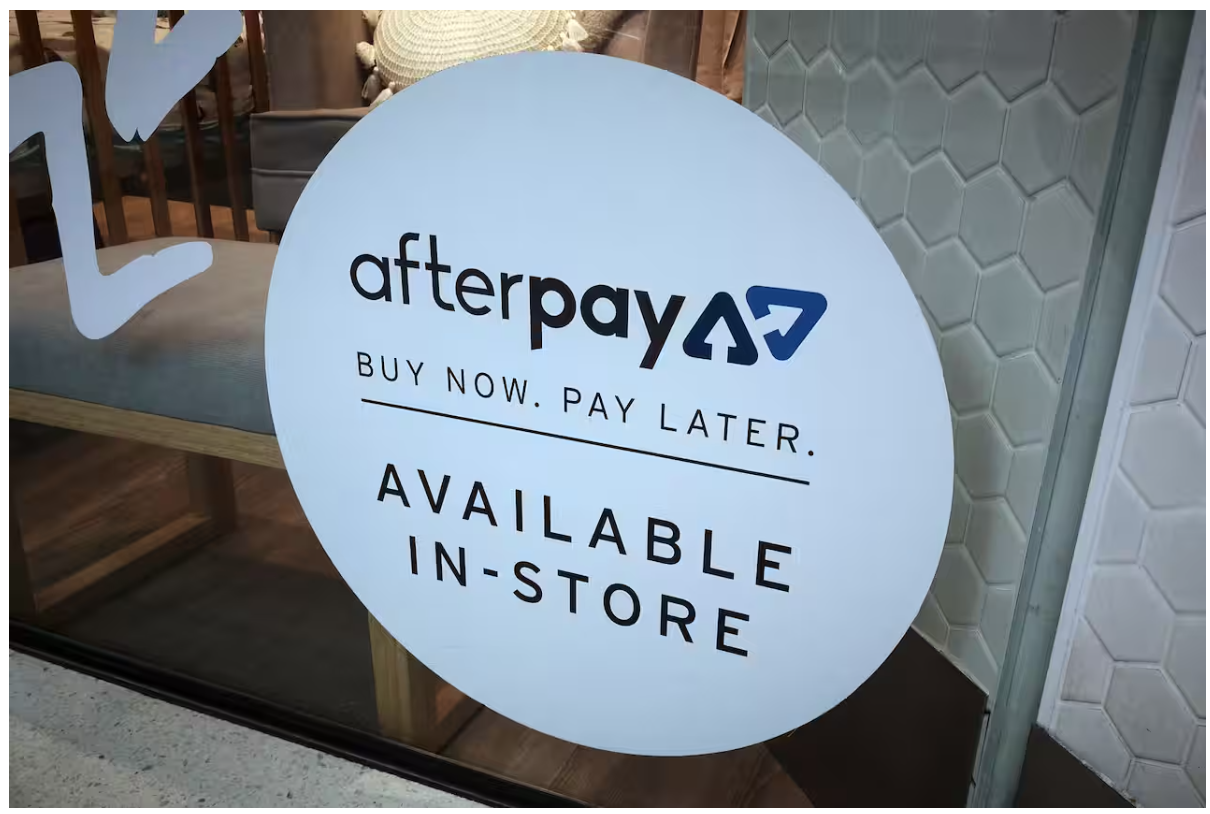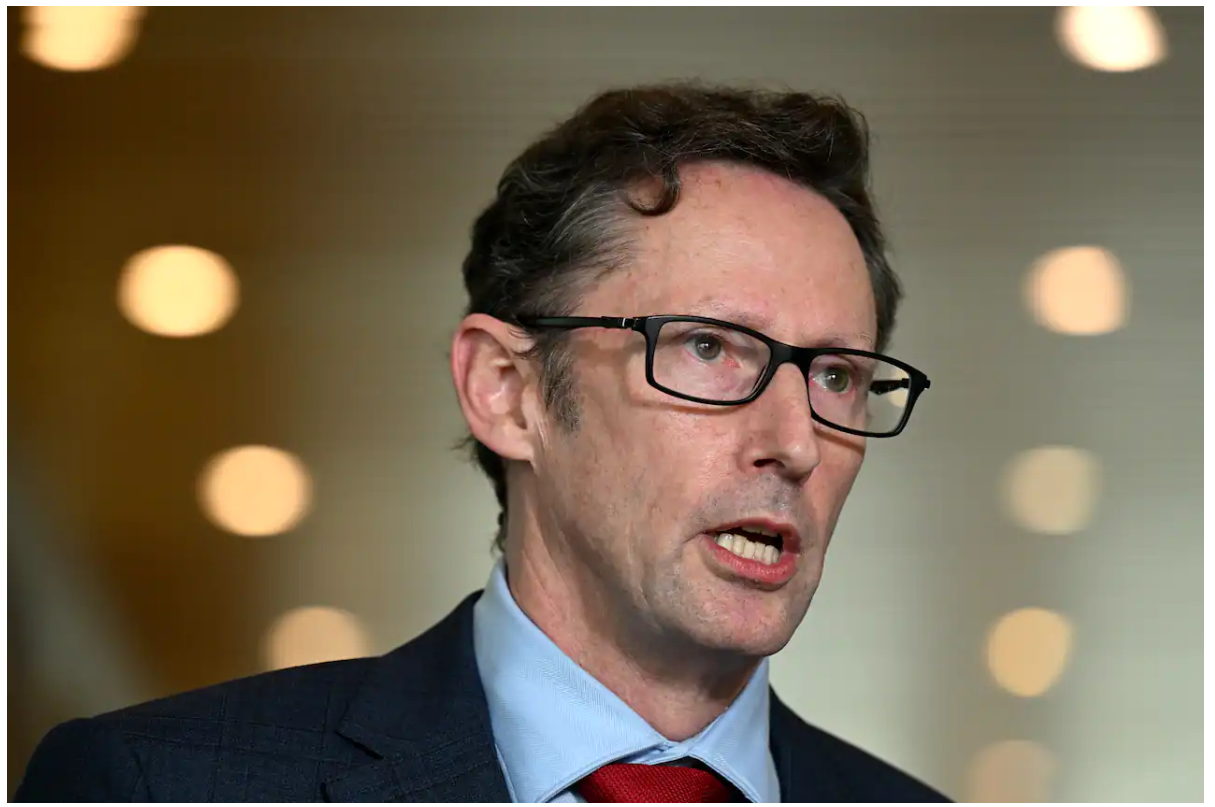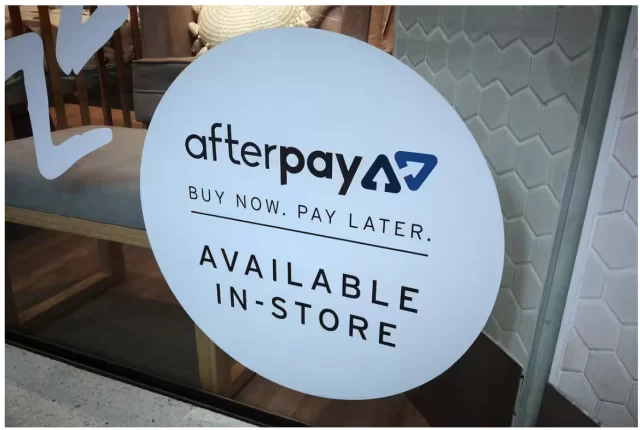Victorian mother Brooke Haebich had been using buy now, pay later (BNPL) services for five years with no problems – making the payments on time.
But just before Christmas, a cascade of events hit, resulting in missed payments – and that was when her nightmare started.
“They’ll just hit you with late fees and things like that. They’ll just keep sort of hounding you and not really respond to the situation,” she told Media.
An unexpected pregnancy meant Ms Haebich was no longer working full-time, her partner had lost his job, and the newborn child had health needs requiring time in hospital.
“We weren’t prepared for some of the snags that we hit. And when we hit them, we just didn’t know what to do. And in the end you just have to put food on the table. We ended up having to spend money on these buy now, pay later systems just to put food on the table.”
Attempts to discuss hardship options and repayment plans were difficult. Email was the only point of contact for some companies, and even after the involvement of a financial counsellor – the charges kept coming.
“[One] debited my partner four times in one day. That was just before Christmas. And we were absolutely struggling with money at the time.
“It was unbelievable. Even with a financial counsellor already sending in paperwork … and that didn’t seem to matter. So there are major concerns around those sorts of things, absolutely.”

Ms Haebich said she is still working through the debt and it has taken its toll.
“I’ve had stressors beyond belief. These sorts of things add extra stress on to what might really be a very stressful time.
“It doesn’t help when you are trying to do the right thing. My partner and I had no intention of not paying. We were just trying to figure out a way of how to do this. But that being said, they’re [the companies are] not really acknowledging that. They’re just sort of treating everyone as the same. You are just a number.”
What are the buy now, pay later reforms?
BNPL services allow customers to acquire an item and pay it off in instalments with no interest, as long as the payments are made on time.
Their relatively low cost has seen use soar against credit cards or payday loans, but there has been an absence of regulation as it currently the services are currently exempt from the Credit Act and the associated responsible lending standards.
The federal government’s decision to push ahead with reform comes after three BNPL regulatory models were outlined in a Treasury paper released in November last year.
The federal government is pursuing option two which involves limited regulation.
Under the new rules, the popular service will be treated more like other credit products.
Providers will need a credit licence in line with other lending services and adhere to minimum standards and hardship requirements.
At this stage, it’s still unclear how strict the checks on credit will be and whether they will apply to loans of all sizes.
BNPL services will also have to abide by marketing restrictions.
Reform for the industry, which has helped create an extra $2.7 billion in revenue for Australian businesses, was necessary because “with those opportunities have come new and growing dangers to consumers”, Financial Services Minister Stephen Jones said.
The impact of late fees in some cases can sting just as much as interest, according to research by Curtin University released in July, 2022.
It found that falling behind on the payment schedule for a $40 purchase on 10 fortnightly repayments would result in an effective annual interest rate as high as 28.25 per cent for Afterpay, 29.32 per cent for Zip Pay, and 177.44 per cent for Humm Australia’s Little Things product.
Ms Haebich welcomed the crackdown and hopes it makes a difference.
“Whether it actually does get done or not, is another thing. But it would be nice if it did because it would protect other people,” she said.
“For example, there’s no point advertising for an interest-free product, when they’re just going to slam you with pretty much double the amount for a late fee anyway, even if you’re trying to communicate with these companies and make arrangements.”
How has the industry and consumer groups reacted?
The flagged changes have attracted the support of major players Afterpay and Zip, as well as the peak body for Australia’s fintech industry.
FinTech Australia general manager Rehan D’Almeida said BNPL was an Australian innovation story that had been exported around the world.
“Considered regulation sets the bar for the sector and ensures that building trust and enhancing the lives of its consumers remains at its core,” Mr D’Almeida said.
Afterpay said in a statement that it welcomed progress on the reform options for “a fit-for-purpose” system that “provides certainty for industry, while Peter Gray, the co-found of Zip, said he anticipates there will be “very minimal” impact to the business as the company has already adopted measures like credit checks.
For CHOICE, leniency for small loans is a concern for consumer groups, with the consumer advocacy group’s CEO Alan Kirkland calling for strong requirements regardless of the amount borrowed.
“While the government has said these will be scalable, we should not assume that small loans are automatically safe,” Mr Kirkland said.

Karen Cox, CEO of the Financial Rights Legal Centre, said it is important that strong enough safeguards are put in place on credit checks and obligations to ensure consumers aren’t accruing debt well beyond their means to repay.
“Minister Jones has said that Responsible Lending will be part of the picture. And that is really important, because a lot of the problems that we’re seeing has to do with people having debts that are way out of proportion to their ability to pay them off, ” she said.
“But he has also indicated that the responsible lending [principles] will be scaled or proportional to the risk. So it’s really important to emphasise that small loans don’t equal safe loans.”
Kristen Hartnett, the national manager of Salvation Army’s Moneycare financial counselling service, said she welcomed moves to provide regulation to a sector that has been up until now unregulated – and she urged those in financial distress to seek help.
“Particularly with so many providers, we know that it’s often difficult, and even our financial counsellors find it difficult to even reach out to the provider. All steps forward will support people experiencing financial hardship.”
With the draft legislation still in formation, the details of the regulations are yet to be finalised. Mr Jones said the government would consult industry and consumer groups, and legislation could potentially be introduced to parliament by the end of the year.
There are seven million active BNPL accounts in Australia, with the average customer using their accounts for 18 transactions a year.



































